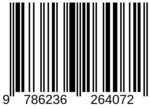PENGEMBANGAN KURIKULUM MATEMATIKA: PENILAIAN PEMBELAJARAN MATEMATIKA BERORIENTASI PROGRAM FOR INTERNATIONAL STUDENT ASSESSMENT DI SEKOLAH MENENGAH PERTAMA
Abstract
Full Text:
PDF (Bahasa Indonesia)References
Brühlmeier, A. (2010). Head, Heart and Hand. Education in the spirit of Pestalozzi. Cambridge: Sophia Books.
Damayanti, H.N.; & Sutama. 2016. Efektivitas Flipped Classroom Terhadap Sikap dan Ketrampilan Belajar Matematika di SMK. Jurnal Manajemen Pendidikan. Vol. 11, No. 1, 2-7.
Denzin, N.K. & Lincoln, Y.S. 2009. Handbook of Qualitative Research (Edisi Bahasa Indonesia). Yogyakarta: Pustaka Pelajar.
Dirjen Dikdasmen. 2017. Panduan Penilaian oleh Pendidik dan Satuan Pendidikan untuk Sekolah Menengah Pertama. Cetakan Ketiga, Kementerian Pendidikan dan Kebudayaan Direktorat Jenderal Pendidikan Dasar dan Menengah Direktorat Pembinaan Sekolah Menengah Pertama.
Flavell, J.H.1976. Metacognition and Cognitive Monitoring: A New Area of Cognitive – developmentally. American Psychology,34.906-911.
Flick, U., Kardorff, E.V., and Steinke, I. 2004. A Companion to Qualitative Research. London: SAGE Publication Ltd.
Freire, P. 2011. Pendidikan Kaum Tertindas. Jakarta: Pustaka LP3ES Indonesia.
Mattine, M.W.2009. CognitivePsychology. Newyork: John Wiley & Sons, Inc.
NRC. 1989. Everybody Counts. A Report to the Nation on the Fut ure of Mathematics Education. Washington DC: National Academy Press.
OECD. 2013. PISA 2012 Assessment and Analytical Framework: Mathematics, Reading, Science, Problem Solving and Financial Literacy. Paris: OECD Publishing.
Purwaningsih, N., Sutama, Narimo, S. 2013. "Pengembangan Pembelajaran Matematika Kontekstual Pada Sekolah Dasar Penyelenggara Pendidikan Inklusi". Junal Pendidikan Matematika, Vol. 1, No. 2, 99-111.
Stacey, K. (2010). Mathematical and Scientific Literacy Around The World. Journal of Science and Mathematics Education in Southeast Asia, 33(1), 1-16.
Sutama, 2019a. Metode Penelitian Pendidikan: Kuantitatif, Kualitatif, PTK Mix Method, R&D. Sukoharjo: CV. Jasmine
Sutama. 2019b. “Pengembangan Pembelajaran teknologi dan Penilaian berbasis HOTSâ€. Workshop Sekolah Rujukan SMK Muhammadiyah 4 Boyolali. Tanggal 18 Juni 2019.
Sutama. 2015. Budaya kerja guru intelektual transformatif: Perubahan refleksi dan aksi guru matematika dalam mengahadapi PPG, artikel Seminar Nasional Pendidikan Matematika: Pemberdayaan Guru Intelektuan Transformatif Menghadapi PPG Surakarta, 10 Mei 2015.
Sutama, 2012. Metode Penelitian Pendidikan: Kuantitatif, Kualitatif, PTK, R&D. Surakarta: Fairuz Media.
Sutama. 2011. “Pengelolaan Pembelajaran Matematika Berbasis Aptitude Treatment Interactionâ€. Pidato Pengukuhan Guru Besar. Surakarta: Muhammadiyah University Press.
Sutama, Anif, S., Prayitno, H.J., dan Sari, D.P. 2019. “Metacognitive knowledge of mathematics education students in analytical geometry of spaceâ€. IOP Conf. Series: Journal of Physics: Conf. Series 1211 (2019) 012056, 1-10. https://iopscience.iop.org/article/10.1088/1742-6596/1211/1/012056
Refbacks
- There are currently no refbacks.


